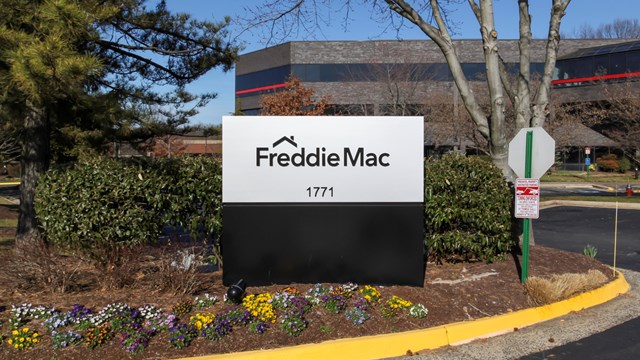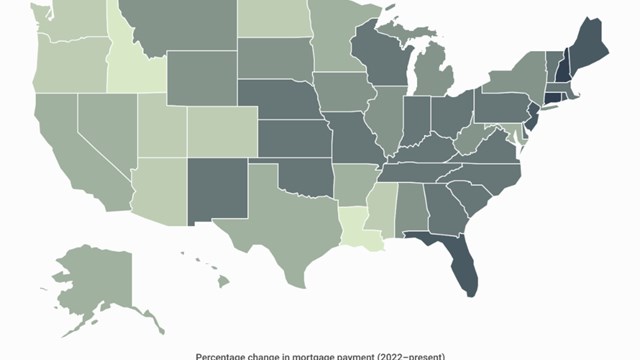Like single-family homes, condominium units tend to be owner-occupied. Financing for these units therefore tends to follow traditional guidelines and requirements centered on owner occupancy. But what happens when a condo unit is held as an income-producing investment? Is financing still available? The answer is yes.
Availability of Financing
Investor units generally fall into two groups: single units and blocks of units. According to Eddie Hoskins, president of First Florida Financial Group LLC, a mortgage brokerage company in Fort Myers, Florida, “Individual condo units which are held for investment are financeable at terms very similar to owner-occupied units.” Joelle Maximilien-Miller, formerly senior loan originator at RK Mortgage Group Inc. in Hallandale, Florida, concurs and adds that “Rates may vary though, as they are substantially based on credit score and whether the condominium is non-warrantable.”
Loan availability in the New York area seems to follow the same pattern. According to Barry Korn, CFA, managing director of the New York City-based Barrett Capital Corporation, financing for these types of investments are available. “The process is similar,” he says. “Purchases are straightforward, in that you have standard criteria relative to LTV [loan-to-value], debt-to-income, and housing expense ratios. With respect to financing an investment condo, there are additional considerations relative to the ability of the borrower in the event of difficulties.”
“FNMA [a.k.a. “Fannie Mae”] loans are available today at an interest rate in the upper four percent range for a 30-year fixed rate mortgage at a loan-to-value ratio of 80 percent,” Hoskins says. An additional requirement for investment condos “is that no more than 49 percent of the units in the complex can be investor units or held as second homes.”
Korn says that in his experience, the basic structure is similar to conventional financing. “But while LTV of up to 75 percent is available,” he adds, “the cash flow from the investment condo often limits the funding to 30 to 40 percent of LTV. Rates are slightly higher for investment condos compared to loans for primary residences. Currently you are looking at five- to seven-year rates in the 3.5 to four percent range. Amortization is up to 30 years.”
One problem for investors seeking mortgages for their units, observes Hoskins, “Is that FNMA will require proof from the condo association of the percentage of owner-occupied primary users in the condominium association, and many complexes don’t keep good records of this information - or won’t provide it.” What can an investor do in this situation? Seeking a portfolio loan is one option.
Portfolio Loans and Multiple Unit Purchases
A portfolio loan is a mortgage provided by a bank, but is not sold into the secondary market. Rather it is held in the bank’s portfolio as a balance sheet asset. The terms for portfolio loans available for investor condo units—whether as a single unit or blocks of units—are somewhat less advantageous than FNMA loans. “The term of the loan remains at 30 years, but the interest is generally adjustable or floating, and the loan-to-value ratio is lower, at 75 percent,” explains Hoskins. “A personal guarantee is generally required.”
Maximilien-Miller adds that for super-luxury units that are being held as investments rather than owner-occupied, the down payment requirement could be as high as 40 percent. “The process generally remains the same for purchase and refinance of investment condos,” she says, “but rates tend to be better on a purchase, because there is usually an additional rate adjustment for cash-out on a refinance. Also, it’s much more difficult to finance a block of units, since condos are generally individually deeded. An investor can get better pricing buying the units as single properties. When purchased in a block, the transaction is categorized as a commercial deal.”
Korn confirms that in the New York area with respect to refinancing, “There is a question as to whether the investor is looking just to refinance or to refinance and take cash out, which will have an impact on the rate.”
As for blocks of units, Korn concurs with Maximilien-Miller that “Financing a block of units takes the transaction into commercial territory. Financing a single unit, while for investment, and therefore a commercial transaction, is still evaluated as a quasi-residential (think consumer) transaction. A block of units requires a much more complicated analysis, both of the units and the investor.”
What to Look For in a Mortgage Professional
Hoskins advises potential borrowers always to choose a mortgage professional who is well-acquainted with your needs as a condominium owner or purchaser. “Too often,” he says, “people choose a lender who doesn’t know what they’re doing; someone who provides loans for single-family homes, rather than condos. They don’t know the differences in the process. They treat a condo loan like a single-family home, and three weeks into the application they get a loan denial because they were unfamiliar with the documents required by the lender.”
Maximilien-Miller reports something similar, particularly as it pertains to purchasers who are foreign nationals. “Many loan originators are not adept at dealing with foreign nationals or non-FNMA approved condos,” she says. This can result in serious closing problems, but “The market has definitely improved over the past few years, based on the fact that there are now many more portfolio lenders offering financing in the space than there were two years ago.”
Different Markets, Different Circumstances
Korn sees things a bit differently in the New York market. “I expect the market for ultra-luxury condominium units - those priced at over $5 million - to be adversely affected on a price per square-foot basis over the next two years. A glut is particularly noticeable in the ultra-luxury category referenced above. There is still a shortage of lower-end units, but the elimination of 421-a [a partial tax exemption of new multiple dwellings, oftentimes in exchange for the developer putting in a percentage of affordable housing] has had a negative impact in terms of new units in this space coming onto the market. ‘Normal’ condominiums, including luxury units under $3 million, will be less impacted. And as the saying about real estate goes; ‘location, location, location’—there will be areas that improve, such as buildings close to the new Second Avenue subway line.”
The good news is that unlike years past, financing is available for investor condo units. The investment decision no longer must hinge on an all-cash purchase if the investor desires leverage. But that investor decision must take into account the various factors at play in individual markets.
A.J. Sidransky is a novelist and staff writer for The Cooperator and other publications.










Leave a Comment